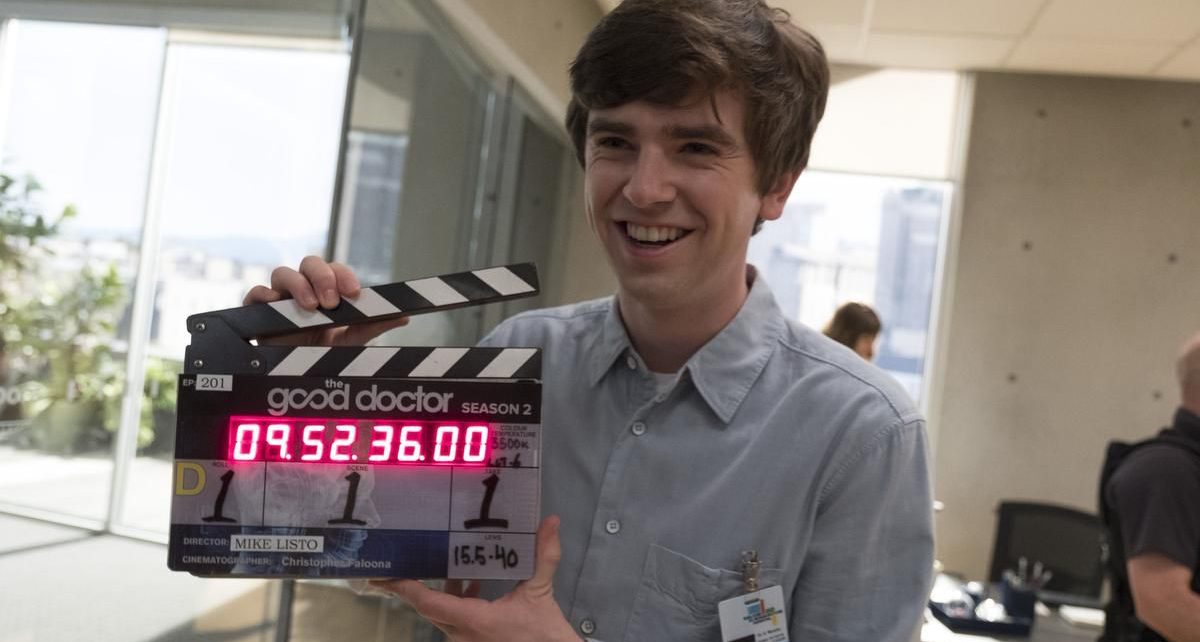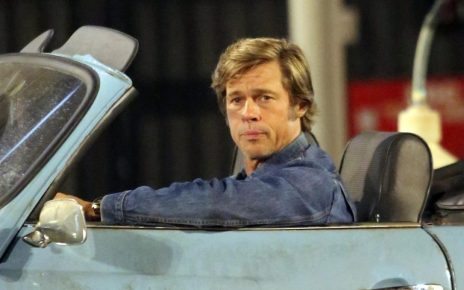BURNABY, B.C.—The hero of The Good Doctor, a young surgeon with autism and savant syndrome, represents the show’s title in more ways than one.
Dr. Shaun Murphy is exceptionally skilled at curing patients, but he’s also morally good, able to see the light in others even if he can’t always connect.
The Good Doctor is breaking hearts and barriers
The Good Doctor takes on sexual harassment
“As a Brit, I’m probably quite cynical in general,” said the 26-year-old with a laugh during a recent interview on the show’s set in Metro Vancouver.
“I think he’s a lovely person to get to inhabit. Getting to portray that version of the world that he sees or he believes in, his faith in humanity, I think is great, especially at a time like today when there’s so much negativity.”
Through Murphy and other doctors at the fictional San Jose St. Bonaventure Hospital, the series explores what it means to be a good person. It’s a hopeful remedy for a dark news cycle and that might be one reason why it became a runaway hit last year, cast members said.
The drama from David Shore, the Canadian creator of House, returns to CTV Monday at 10 p.m. The second season finds Murphy grappling with the aftermath of a surgical mistake and facing the brain-cancer diagnosis of his mentor, Dr. Aaron Glassman (Richard Schiff).
Highmore wrote the season premiere and though it’s his writing debut on The Good Doctor, he previously picked up script credits on Bates Motel.
“It came about somewhat naturally,” he said. “On Bates, it seemed odd to me to invest so much in the four, five months of filming, because we only did 10 episodes, and then sort of step away and do nothing … I wanted to live in that world longer.
“The same applies to The Good Doctor — that desire to be continually involved and to embrace the show as much as possible and help out as much as I possibly can.”
Since the show’s popular debut, it has moved into a larger set with a vast operating theatre, patient rooms, a nurse’s station and long hallways that allow for lengthy walk-and-talk scenes.
Nicholas Gonzalez, who plays Dr. Neil Melendez, remembered reading the pilot and instantly knowing how good it was.
“So much of it, though, from the beginning, really depended on what Freddie was going to do. That was going to make the show or sink it,” he said.
Highmore admitted to feeling some anxiety about getting his performance right. He did extensive research on autism and continues to work with a full-time consultant.
He quoted the consultant as saying, “When you’ve met one person with autism, you’ve met one person with autism.”
“Shaun is never going to represent everyone who’s on the spectrum,” Highmore said. “Of course it’s lovely when people who are on the spectrum or are close to those on the spectrum see a resemblance.
“But he can never stand for everyone, in the same way a neurotypical lead of a show will never represent everyone who’s neurotypical.”
Gonzalez praised Highmore’s performance as genuine, rather than relying on mannerisms or “shtick.”
“When you’re opposite Freddie, Shaun is learning. Shaun is processing. Shaun is making mistakes,” he said. “It’s not impression. He doesn’t slip into the character and play around. He lives it a lot, too.”
The show also features characters who challenge Murphy and don’t treat him with kid gloves, including Hill Harper’s Dr. Marcus Andrews, the new hospital president, and Fiona Gubelmann’s Dr. Morgan Reznick, a combative surgical resident.
Gubelmann highlighted a scene that didn’t make it into the show but was featured in the DVD outtakes, where Reznick playfully throws Murphy’s badge on the ground in order to get to an ultrasound machine first.
“She’s going to treat Shaun like everybody else. She doesn’t look down on him. She treats him like an equal,” she said.
Highmore said he wanted to avoid a stereotype of people with autism and savant syndrome being “superheroes,” and so he appreciated the episode where Murphy made the surgical error.
“He’s going to make insights that others won’t be able to make and see things that others can’t,” he said. “But that also means that he has certain weaknesses that we don’t shy away from talking about and explaining.”






